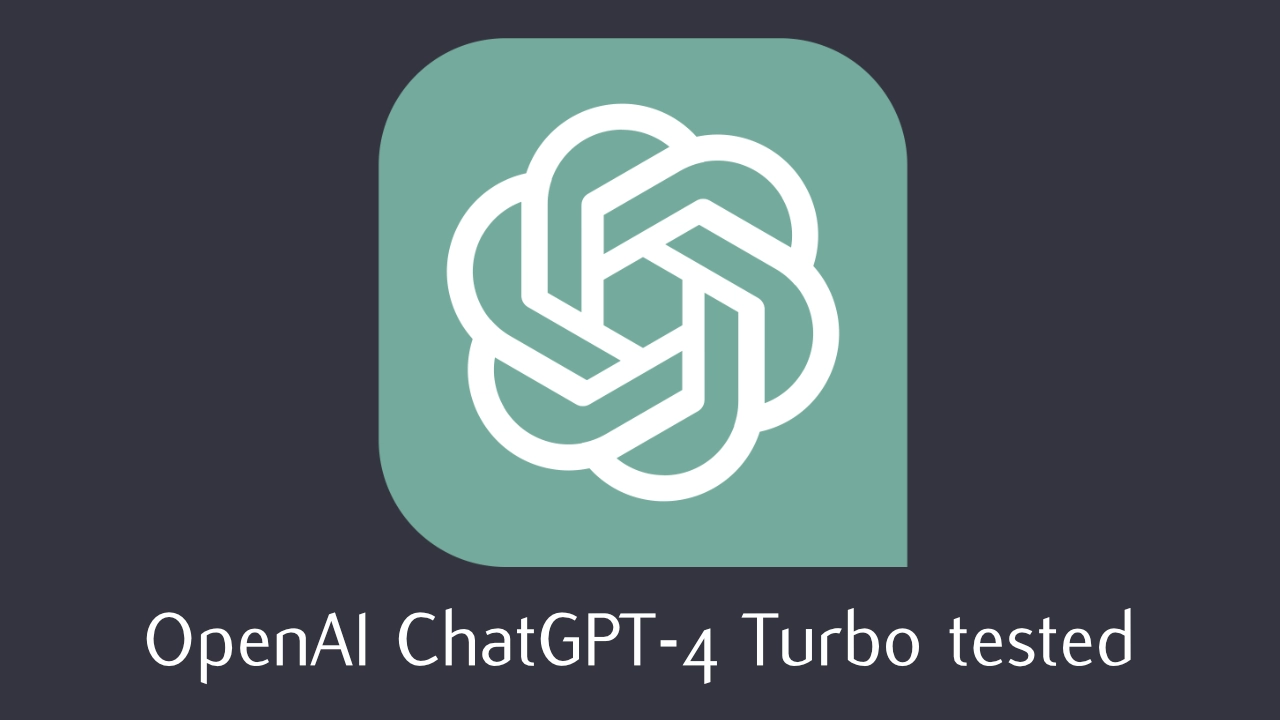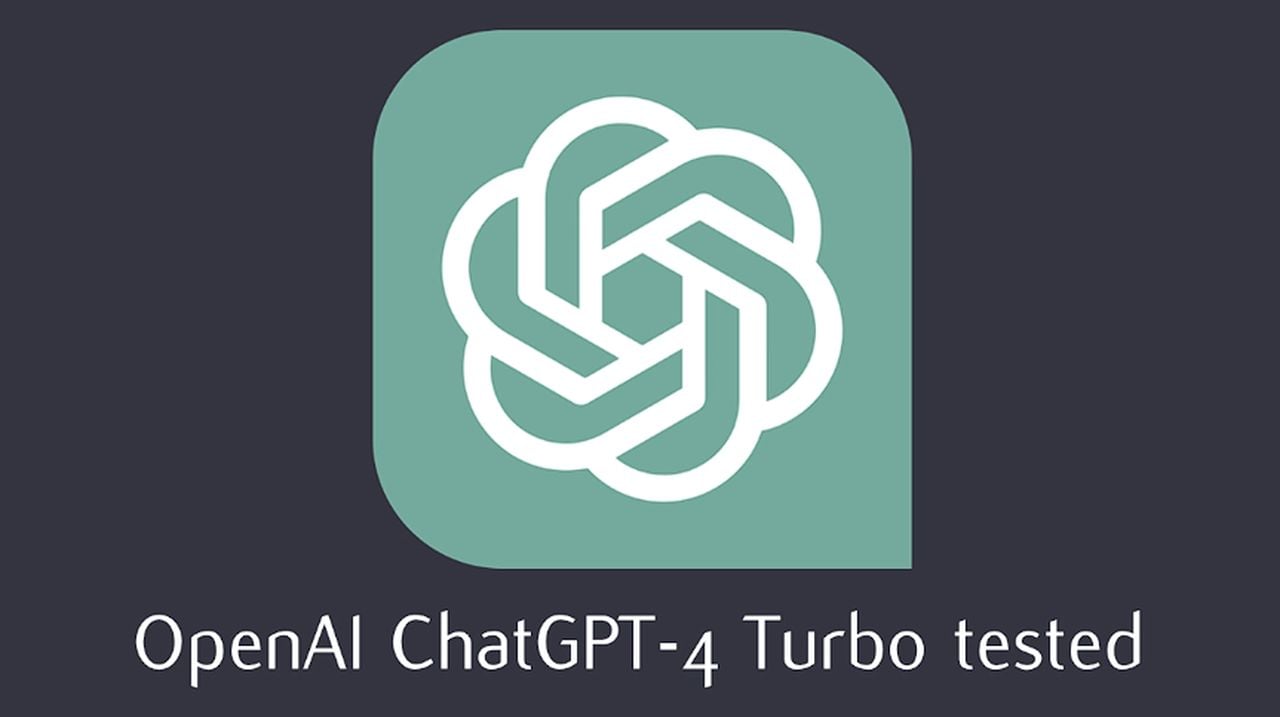
If you are interested in learning more about all the new updates released by OpenAI to its GPT-4 AI model and other services and news from the first ever OpenAI Dev Day Keynote event. This quick overview provides more insight into what you can expect from the performance of the latest ChatGPT-4 Turbo AI model and also an overview of the other enhancements, features and services announced by OpenAI that will soon be available for ChatGPT users to enjoy.
During the conference Sam Altman announced the imminent release of ChatGPT-4 Turbo, an upgraded version of the already sophisticated language model GPT-4, represents a significant leap forward in the field of AI development. This improved model introduces six key enhancements that are set to transform how developers work with AI.
ChatGPT-4 Turbo
These enhancements include a longer context length, greater user control, improved knowledge, the addition of new modalities, customization options, and increased rate limits. The cut-off date for the new ChatGPT-4 Turbo AI model has also been increased to April 2023 allowing the AI model to expand its knowledge from the original September 2021 cut-off date for ChatGPT-4 released back in March 2023.
The new 128k context window, when used with the ChatGPT-4 Turbo engine, allows for extensive text processing. This means you can process larger amounts of text at once, making it easier to analyze and generate text-based content. This is especially useful for tasks such as document analysis, content generation, and machine translation.
Other articles you may find of interest on the subject of OpenAI and its products :
OpenAI GPT Price reductions
In an effort to make AI more accessible, OpenAI has reduced the price of GPT-4 Turbo. This strategic move is designed to make AI more affordable and accessible to a wider range of developers. By reducing the financial barrier to entry, OpenAI is encouraging more developers to explore and use AI technologies. This could potentially lead to an increase in the number of AI apps on the market, offering a wider range of solutions for end-users and expanding the possibilities of AI.
Copyright Shield
Another major update is the OpenAI Copyright Shield, a legal protection tool designed to safeguard you from potential copyright issues when using AI technologies. This is particularly important if you’re developing AI bots or custom AI models that could unintentionally infringe on copyrighted material. This tool provides a safety net, allowing you to innovate without worrying about legal issues.
OpenAI GPTs customizable AI models
Another significant update is the introduction of General Purpose Transforms (GPTs). GPTs give you the ability to build customized versions of Chat GPT, complete with instructions, expanded knowledge, and actions. This means you can create AI assistants like Matbot 3000, tailored to specific needs and requirements. Additionally, you can use the Assistance API to create AI assistants, and the persistent threads feature to maintain conversation history, enhancing the user experience and making your AI applications more user-friendly.
GPT-4 upgrades
OpenAI APIs
The Assistance API is another noteworthy feature. It aids in the creation of chatbots, providing a way to automate conversations. This is particularly useful in customer service, where chatbots can handle routine inquiries, freeing up human agents to deal with more complex issues.
– GPT Vision API is a powerful tool for image analysis, providing detailed insights into image content. This is particularly useful in fields such as surveillance, medical imaging, and content moderation, where accurate image analysis is crucial.
– DallE 3 API is designed for image generation. It can create images based on user prompts, making it a valuable tool for graphic designers, artists, and anyone needing to quickly and efficiently generate images. This API can greatly reduce your workload, allowing you to focus on the creative aspects of your work, thereby increasing productivity.
– Text to Speech API is another key feature. This tool converts written text into spoken words, providing a way to create audio content from written material. This is especially useful for creating audiobooks, podcasts, or any other form of audio content. The API supports a variety of languages and voices, allowing you to customize the output to meet your specific needs.
For developers, these advancements mean you now have the tools to build more complex and nuanced AI applications. For instance, the JSON mode feature enables you to generate valid JSON responses, while the reproducible outputs feature ensures consistent model outputs, enhancing the reliability of your AI applications.
Everything announced by OpenAI
GPT Store
OpenAI also launched the GPT Store, a marketplace specifically for GPT models. This platform functions similarly to an app store, allowing you to sell your GPTs and providing a platform for monetizing your AI developments. This could potentially lead to an increase in the number of AI solutions available on the market, offering a wider range of options for end-users and fostering a more competitive AI landscape.
However, these updates could also have implications for existing SaaS startups. OpenAI appears to be incorporating many features that were previously offered by third-party tools. This could potentially make some existing SaaS startups obsolete, as developers might prefer to use OpenAI’s integrated tools instead, leading to a shift in the SaaS landscape.
OpenAI’s Dev Day announcements represent significant advancements in AI development. The introduction of ChatGPT-4 Turbo, the Copyright Shield, the reduction in pricing, the launch of GPTs, and the GPT Store, as well as the Assistance API and persistent threads, are all expected to make AI app development more accessible and affordable. However, these updates could also disrupt the existing landscape of SaaS startups. As a developer, it’s crucial to stay updated with these advancements and consider how they might impact your work, shaping your strategies and decisions in the rapidly evolving world of AI.
Filed Under: Guides, Top News
Latest timeswonderful Deals
Disclosure: Some of our articles include affiliate links. If you buy something through one of these links, timeswonderful may earn an affiliate commission. Learn about our Disclosure Policy.

